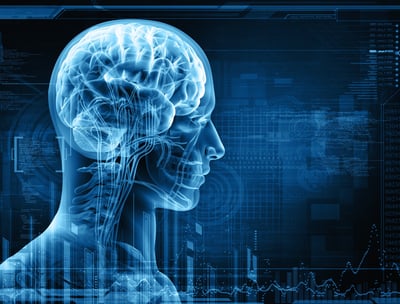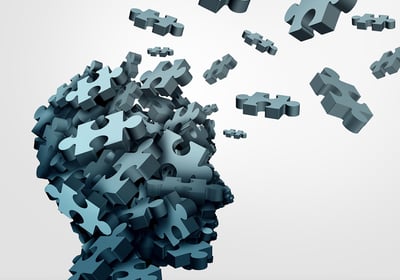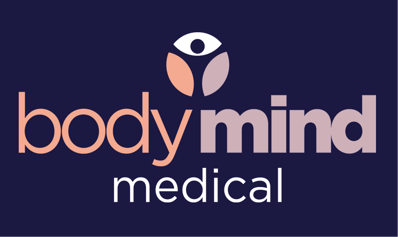

ADHD Clinic
Cutting Edge Research
For Making Smart Decisions
Cutting Edge Research
For Making Smart Decisions
The functional medicine and functional neurology approach to resolving ADHD focuses on identifying and addressing root causes, such as nutrient deficiencies, gut-brain axis imbalances, inflammation, and environmental toxins. Personalised assessments and lab tests uncover triggers, while tailored interventions—nutritional optimisation, neurofeedback, lifestyle adjustments, and cognitive therapies—support improved focus and emotional regulation. By enhancing brain function and resilience through neuroplasticity, this approach provides sustainable solutions to manage ADHD symptoms and foster long-term mental and cognitive well-being.
Did You Know ?
9.4%


of children aged 2 - 17 have been diagnosed with ADHD




of adult men have been diagnosed with ADHD
of adult women have been diagnosed with ADHD
5.4%
3.2%
Yet research has shown that only about 20% of them have ever been diagnosed or received treatment.
What Is ADHD ?
Attention Deficit Disorder (ADD) – also known as attention deficit hyperactivity disorder (ADHD), is a neurodevelopmental disorder marked by pervasive problems with attention, and in many cases, impulsive and hyperactive behaviour as well.
These often lead to a range of behaviour issues, causing significant challenges in school and at work, and interfering with social development and peer interactions. ADD/ADHD is a national health crisis that continues to grow—yet it remains one of the most misunderstood and incorrectly treated illnesses today.
Who Has ADHD ?
According to the Center for Disease Control (CDC), 9.4% of children between the ages of 2 and 17 have been diagnosed with ADD/ADHD. To further complicate things, it is not uncommon for a child with this condition to also have a learning disorder, thus adding to the academic challenges they face. While the symptoms of ADD/ADHD emerge in childhood, if left untreated, they can persist throughout a person’s life.
In fact, the National Institute of Mental Health has found that 5.4% of adult men and 3.2% of adult women have ADD/ADHD, and other research has shown that only about 20% of them have ever been diagnosed or received treatment. This condition is often overlooked in females because their primary issue is inattention, and they are less likely to exhibit the disruptive hyperactivity that is so often seen in males with ADHD.
Core Symptoms Of ADHD ?
Statistics show that 33% of kids with ADD/ADHD never finish high school (3 times the national average) so they end up in jobs that don’t pay well. Another study has found that children with untreated ADD/ADHD are nearly twice as likely to develop an alcohol use disorder or other substance abuse problem, and that they tend to start using at an earlier age compared to other kids.
short attention span for everyday tasks
distractibility
procrastination
disorganisation
problems with follow through
poor impulse control
Consequences Of Untreated ADHD
depression
school drop out
substance abuse
prison time
traffic accidents
job failure and unemployment
financial problems
obesity
divorce
suicide
The Discovery Consultation
The discovery consultation is a three-part process analysing life stress, symptoms, and advanced lab tests to uncover root causes, providing personalised insights for effective treatment and lasting health improvements.
Symptoms Analysis
A functional medicine symptoms analysis for ADHD evaluates inattention, hyperactivity, impulsivity, and emotional dysregulation. It explores root causes like nutrient deficiencies, gut health issues, or hormonal imbalances, offering a personalised approach to improve focus, behaviour, and overall cognitive health.


Lifestyle Analysis
A functional medicine laboratory analysis for ADHD investigates biomarkers like nutrient levels, inflammation, gut microbiota, and hormonal imbalances. Comprehensive testing uncovers root causes, enabling tailored interventions to enhance focus, emotional regulation, and overall brain function for sustainable symptom improvement.
Laboratory Analysis




A functional medicine lifestyle analysis for ADHD examines diet, sleep, stress, physical activity, and environmental exposures. It identifies triggers like sugar, poor sleep, or toxins, enabling personalised interventions to enhance focus, emotional balance, and overall brain function.
What Is Neuroplasticity ?
Neuroplasticity refers to the brain's ability to reorganise itself by forming new neural connections throughout life. This adaptability enables the brain to compensate for injury, adapt to new experiences, and optimise function. In treating memory loss, neuroplasticity is foundational, as therapies focus on stimulating neural pathways, enhancing brain resilience, and restoring cognitive abilities. By addressing underlying factors like inflammation, stress, and lifestyle, treatments leverage neuroplasticity to improve memory, boost learning, and promote long-term brain health.
Alan Lee
Certified ADHD Functional Medicine Practitioner
Certified ADHD Educator


Functional Neurology Practitioner
Interdisciplinary Association of Functional Neurology and Rehabilitation
Functional Psychiatry
Psychiatry Redefined
Functional Medicine Practitioner
Institute Of Functional Medicine
Kharrazian Institute
Get In Touch


Our Office
Inform visitors about your business location and working hours.
Address
Fernbank House, Springwood Way, Macclesfield SK10 2XA
Hours
9am - 6pm


